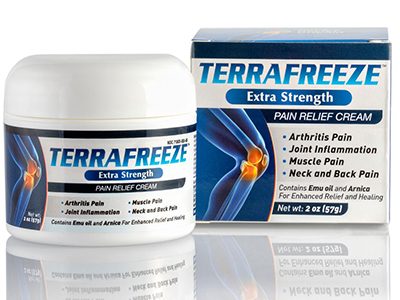If you are visiting the gym daily and lifting heavy weights but still failing to see results, frustration is probably your feeling over it.
But the simple answer might be recovery. Ask yourself, are you giving your body enough rest so that it can properly recover from these workouts?
Sore muscles are certainly uncomfortable to tolerate as you wait for them to recover. Everyone wishes their sore muscles would recover faster. They might take supplements or try various stretches or yoga exercises to make this happen.
While there is no current scientific research that supports a definite solution to increase the time your body takes to recover.
We’ve put together several proven treatments to reduce the soreness as your body fully recovers.
5 Factors That Play a Role in Recovery

1) Sleep & Rest – The most important way to stimulate your recovery is to get plenty of rest. You should get at least 6 to 8 hours of sleep each night. During your waking hours, try to do some light exercises so that blood can flow faster to your sore muscles. That way, the pain can be alleviated a little bit. Light exercises during the recovery phase are called “active recovery exercises.” Some examples of light exercises include walking, jogging, and swimming.
2) Drink Water – You need to keep your body hydrated with water. Your body is filled with toxins, so you need water to assist in flushing them out. Otherwise, you will become dehydrated, and your muscles will feel even worse. No one knows the exact quantity of water that you need to drink per day but a good suggestion to start is to take half of your body weight in pounds and turn that into ounces, that is how much water you should aim to drink daily. So, if you weigh 200 pounds, then you would drink 100 ounces of water daily.
3) Carbs & Protein – You need to consume twice as many carbohydrates as you do protein either before, or after your workout, or both to help reduce muscle soreness.
4) Topical Pain Relievers –There are plenty of pain-relieving topical creams that you can put on your sore muscles, such as Terrafreeze or Icy Hot. These creams will not affect the development of muscles but will provide pain relief.

Look for one like Terrafreeze with natural ingredients and proven to reduce inflammation and improve mobility.
5) Nonsteroidal Anti-Inflammatory Drugs – Aleve and Advil are examples of nonsteroidal anti-inflammatory drugs that you take orally. These will help temporarily reduce the soreness feeling that you have in your muscles. Use caution with these drugs as it is not advised to use NSAIDs consistently. Take only if needed for severe soreness in the initial stage. Additional forms of treatment are cold baths, ice, moderate stretching, Epsom salt baths, and massages. However, these may not help you recover as fast as the previously listed treatments.
Weight Training & Long Distance Running Recovery Time:
 Various factors determine how much recovery time you will need. The main factors are your current fitness level, experience with exercising, and the intensity of the exercise. For instance, let’s suppose your body is in excellent physical shape. If you get on the bench press and do two sets of light presses, the soreness in your chest will not last longer than a day. However, if you increase the weight of your presses and increase the number of sets and reps of your workout, then your chest will likely be sore for many days afterward. Especially if you’re performing new movements that you are not familiar with. Also, the metabolic intensity of your exercises is a huge factor too. Let’s say you do a high-intensity workout of squatting heavy weights at the beginning of the week. You’ll need to wait at least a couple of days before doing those same exercises again. Otherwise, you will put a strain on your central nervous system. As for running, the same concepts apply. For instance, there are marathon runners who can run over 100 miles every week without hardly any rest periods. Then you have people who just run 20 miles on the weekends or attempt to perform hill running to change their routine. These are the people who feel more soreness and need extra time to recover.
Various factors determine how much recovery time you will need. The main factors are your current fitness level, experience with exercising, and the intensity of the exercise. For instance, let’s suppose your body is in excellent physical shape. If you get on the bench press and do two sets of light presses, the soreness in your chest will not last longer than a day. However, if you increase the weight of your presses and increase the number of sets and reps of your workout, then your chest will likely be sore for many days afterward. Especially if you’re performing new movements that you are not familiar with. Also, the metabolic intensity of your exercises is a huge factor too. Let’s say you do a high-intensity workout of squatting heavy weights at the beginning of the week. You’ll need to wait at least a couple of days before doing those same exercises again. Otherwise, you will put a strain on your central nervous system. As for running, the same concepts apply. For instance, there are marathon runners who can run over 100 miles every week without hardly any rest periods. Then you have people who just run 20 miles on the weekends or attempt to perform hill running to change their routine. These are the people who feel more soreness and need extra time to recover.
Factors That Slow Down Recovery
Below are the 3 main factors that slow down the recovery process.
1) Very Little Sleep – If you do not get enough sleep, then it will take longer for your sore muscles to recover. This means more pain.
2) Bad Nutrition – If you do not drink enough water or consume enough potassium and/or protein, then your muscle soreness will last longer and the pain may feel worse.
3) Too Much Training – If you consistently do intense workouts without getting enough rest, then the soreness of your muscles will feel worse instead of better. To speed up your recovery time and prevent painfully sore muscles, get on an exercise program where you gradually increase the intensity of your workouts as time goes on.
Recovery Foods There are foods with certain nutrients that assist in speeding up the recovery process. They are as follows:
1) High Potassium Foods – The body needs minerals like potassium to make muscle contraction better and enhance the functionality of the heart. If you are deficient in potassium, then you will incur more muscle cramping and soreness. You can get potassium from eating potatoes, bananas, raisins, oranges, and melons.
 2) Foods w/ Protein – The muscles need protein to repair and build themselves. Some protein-rich foods include dairy products, meat, and eggs.
2) Foods w/ Protein – The muscles need protein to repair and build themselves. Some protein-rich foods include dairy products, meat, and eggs.
3) Bromelain Enzyme – Bromelain is an anti-inflammatory enzyme that assists in treating bruises, strains, and sprains. It is found in tropical fruits like pineapple.
4) Anthocyanins – Some antioxidants like anthocyanins are anti-inflammatory. They can lower inflammation in the sore areas of your body. Cherries are a food that is loaded with anthocyanins.
5) Omega-3 Fatty Acids – If you want to lower joint or muscle inflammation, you’ll need to consume more Omega-3 fatty acids. You can find them in fish and fish oil supplements.
How to Handle Overtraining
When you perform so much exercise that your body has trouble recovering from it all, this is called over-training. Most people who go to the gym for the first time will go through this. Anytime you increase the intensity of your normal exercise, you will be over-training. This is not necessarily a bad thing as long as you don’t jump too far in your intensity too quickly. Watch your heart rate carefully and if you notice chronic joint soreness or lack of strength, then stop and allow your body to recover.


